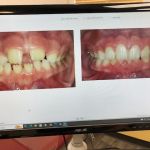How to Avoid Tooth Sensitivity When Eating Cold Foods
Tooth sensitivity can be a painful and frustrating experience, especially when eating or drinking cold foods. If you find yourself wincing at the thought of enjoying an ice cream cone or a cold drink, you're not alone. Fortunately, there are effective strategies to help prevent and manage tooth sensitivity when eating cold foods. In this article, we’ll dive into the causes of tooth sensitivity and share tips on how to protect your teeth while still enjoying your favorite cold treats.
1. Understanding Tooth Sensitivity
Tooth sensitivity occurs when the underlying layer of your teeth, called the dentin, becomes exposed. This can happen due to gum recession, worn enamel, or tooth decay. Dentin is more porous than enamel, and when it is exposed, it allows cold substances to reach the nerves inside your teeth, leading to discomfort or pain.
It's important to note that tooth sensitivity can vary in intensity, and factors such as brushing habits, diet, and overall oral hygiene can influence the severity. Now that we understand the causes of tooth sensitivity, let’s explore ways to reduce discomfort when consuming cold foods.
2. Use a Desensitizing Toothpaste
One of the most common and effective solutions for managing tooth sensitivity is using a desensitizing toothpaste. These toothpastes contain compounds like potassium nitrate or strontium chloride, which help block the transmission of pain signals from the nerve endings in the dentin to the brain.
Regular use of a desensitizing toothpaste can help build up a protective barrier on your teeth, reducing sensitivity over time. Make sure to brush with a soft-bristled toothbrush and avoid harsh scrubbing to prevent further enamel wear.
3. Avoid Acidic Foods and Drinks
Acidic foods and drinks, such as citrus fruits, soda, and vinegar-based dressings, can erode tooth enamel and increase tooth sensitivity. If you’re prone to tooth sensitivity, it’s wise to limit your intake of acidic substances, especially before consuming cold foods. Opt for neutral foods that won’t further irritate your sensitive teeth.
If you do consume acidic foods, consider drinking water afterward to help rinse away acids and protect your enamel from prolonged exposure.
4. Choose Cold Foods Wisely
If you're sensitive to cold foods, consider switching to slightly warmer options. For example, instead of eating ice cream directly from the freezer, let it sit at room temperature for a few minutes to soften. This simple adjustment can make a significant difference in reducing discomfort.
You can also try eating foods that are not as intensely cold, like frozen yogurt or room-temperature smoothies. This way, you can still enjoy your favorite foods without triggering sensitivity.
5. Maintain Good Oral Hygiene
Practicing good oral hygiene is crucial for preventing tooth sensitivity. Brushing your teeth twice a day with fluoride toothpaste, flossing regularly, and visiting your dentist for routine check-ups are essential habits to ensure your teeth stay healthy and free from decay. Neglecting oral hygiene can worsen tooth sensitivity by allowing plaque to build up and contribute to gum recession or tooth decay.
For sensitive teeth, it’s important to brush gently and avoid using overly abrasive toothpaste. Aggressive brushing can wear down enamel and exacerbate sensitivity.
6. Protect Your Teeth from Grinding
Tooth grinding, or bruxism, is another common cause of tooth sensitivity. Grinding your teeth, especially while sleeping, can wear down enamel and expose the dentin. If you grind your teeth, especially at night, consider using a mouthguard to protect your teeth while you sleep.
If you notice signs of tooth grinding, such as jaw pain or worn-down teeth, consult your dentist for advice on getting a custom mouthguard that will help reduce sensitivity and protect your enamel.
7. Use a Straw for Cold Drinks
If you enjoy cold beverages but find them too uncomfortable for your sensitive teeth, consider using a straw. Drinking cold liquids through a straw minimizes contact with your teeth, reducing the likelihood of triggering sensitivity. This simple tip can help you enjoy your favorite cold drinks without the discomfort.
8. Consider Professional Dental Treatments
If home remedies don’t provide relief, it’s time to consult your dentist. Professional treatments such as fluoride varnishes or bonding agents can help strengthen tooth enamel and reduce sensitivity. Your dentist may also recommend sealants to protect sensitive areas of your teeth and prevent cold foods from causing pain.
Conclusion: Enjoy Cold Foods Without the Pain
While tooth sensitivity can be a challenge, there are many ways to manage it and continue enjoying your favorite cold foods. By following these simple steps, such as using desensitizing toothpaste, avoiding acidic foods, and maintaining good oral hygiene, you can reduce discomfort and protect your teeth from further damage.
If you’re looking for additional ways to prevent tooth sensitivity, explore Dentistry Toothtruth for expert advice and high-quality oral care products that can support your journey to a pain-free smile.
OLD Keywords-8: how to avoid tooth sensitivity when eating cold foods, prevent tooth sensitivity, tips for sensitive teeth, manage tooth sensitivity, desensitizing toothpaste for cold foodsSEO Title: How to Avoid Tooth Sensitivity When Eating Cold FoodsSEO Keywords: how to avoid tooth sensitivity when eating cold foods, prevent tooth sensitivity, tips for sensitive teeth, manage tooth sensitivity, desensitizing toothpaste for cold foodsSEO Description: Discover effective ways to prevent and manage tooth sensitivity when eating cold foods. Learn tips for avoiding discomfort with the right products and practices to protect your teeth and enjoy your favorite cold treats.






 Kate Lembck Orthodontics4.0 (115 review)
Kate Lembck Orthodontics4.0 (115 review) Culver Marina Dental Group4.0 (256 review)
Culver Marina Dental Group4.0 (256 review) West Jordan Modern Dentistry and Orthodontics4.0 (222 review)
West Jordan Modern Dentistry and Orthodontics4.0 (222 review) Children's Dental Health of Downingtown4.0 (658 review)
Children's Dental Health of Downingtown4.0 (658 review) Sweet City Smiles5.0 (513 review)
Sweet City Smiles5.0 (513 review) Dr. Aaron Ivanhoe5.0 (6 review)
Dr. Aaron Ivanhoe5.0 (6 review) The Importance of Oral Health Education During Pregnancy for a Healthy Pregnancy
The Importance of Oral Health Education During Pregnancy for a Healthy Pregnancy Best Tips for Brushing Your Teeth Properly for Healthy Gums: Essential Techniques for Oral Health
Best Tips for Brushing Your Teeth Properly for Healthy Gums: Essential Techniques for Oral Health Why Skipping Dental Checkups Can Lead to Bigger Oral Health Problems
Why Skipping Dental Checkups Can Lead to Bigger Oral Health Problems Advantages of Porcelain Dental Restorations
Advantages of Porcelain Dental Restorations How Can Diabetes Cause Tooth and Gum Problems? Preventing and Managing Oral Health Issues
How Can Diabetes Cause Tooth and Gum Problems? Preventing and Managing Oral Health Issues Healthy Habits for Promoting Good Oral Health and Hygiene: Tips for a Healthy Smile
Healthy Habits for Promoting Good Oral Health and Hygiene: Tips for a Healthy Smile